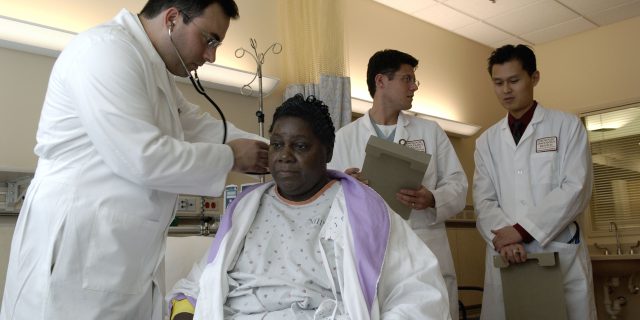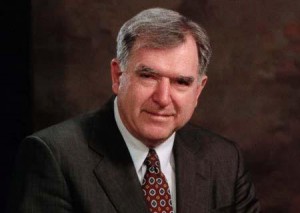Do physicians understand their patients?
Writing for Scope blog, Jessica Rice described her experience asking difficult questions of her physicians. 
“I consider myself a down-to-earth, logical creature; looking at the facts and hearing the truth is strangely comforting to me. This is why I recently asked, ‘What will dying be like if it’s the brain tumors that kill me? Will it be sudden, like a seizure with an uncontrollable brain bleed?’”
She wondered if what she was asking, the directness of her questioning (how she asked) or the fact that she was a 30-something stage 4 lung cancer patient, was why physicians seemed
“very uncomfortable – squirmy, even… it may also be that even the most seasoned professionals hate facing the ugliest truths about cancer.
Reading this and other patient accounts brings to mind one 2011 study (among others) describing an important discrepancy between physicians and patients: their knowledge and understanding of health beliefs. In that study physicians underestimated patients’ understanding of what it meant to have the disease, their fault in having the disease, their control over the situation, their desire for wanting to partner with their physicians in their care, the biological causes of their condition and the extent of effectiveness of natural therapies. If the patients were African American or Hispanic, the mismatch with regards to understanding desires for partnership with physicians and control of disease (respectively) were more pronounced.
An important factor in mitigating this difference in understanding was patient involvement. The more questions, concerns, preferences and opinions that the patient communicated, the closer the physician came to understanding of the patient’s beliefs.
Health Beliefs Model
Beliefs are key to theories on health behavior. For example, the Health Beliefs Model states that beliefs about health, influence, and can even predict health behaviors such as taking medication, using health care services or even making changes in lifestyle. Understanding what patients believe about health, from the amount of control a patient feels that she has over her health to the extent to which that patient wants a partnership with their healthcare provider, seems extremely important to positive health outcomes. Why is understanding a patient’s health beliefs important?
3 Reasons Doctors Need to Understand Patients Health Beliefs
Reason 1:
Being aware of a patient’s health beliefs might help physicians determine gaps between the patient’s understanding of their health situation and the physician’s understanding of that situation. Recently, a post on the New York Times Well section, illustrates the disjunction  between a physician’s viewpoint and a patient’s perspective. Dr. Danielle Ofri describes a patient who came for an appointment.
between a physician’s viewpoint and a patient’s perspective. Dr. Danielle Ofri describes a patient who came for an appointment.
“He cheerfully admitted that he hadn’t been paying attention to his diabetes for the last few years. He’d stopped taking his medicine, stopped seeing his doctors, stopped thinking about the disease altogether.”
For this taxi driver, “diabetes was one small part” of his life, to his doctor neglect of his diabetes was an enormous problem, “the gravest and most immediate risk to his health.”
Reason 2:
Empathy. Knowing that physicians empathize contributes to perceptions of quality of care and effective communication. But as the former editor of The New England Journal of Medicine Dr. Arnold Relman noted when he was in the hospital after breaking his neck,
“…what I hadn’t appreciated was the extent to which, when there is no emergency, new technologies and electronic record-keeping affect how doctors do their work. Attention to the masses of data generated by laboratory and imaging studies has shifted their focus away from the patient. Doctors now spend more time with their computers than at the bedside. That seemed true at both the ICU and Spaulding. Reading the physicians’ notes in the MGH and Spaulding records, I found only a few brief descriptions of how I felt or looked, but there were copious reports of the data from tests and monitoring devices. Conversations with my physicians were infrequent, brief, and hardly ever reported.”
Reason 3:
Finally, research indicates that patients’ perceptions of their care are higher, their involvement in their treatment is greater and their overall satisfaction is increased if there is true understanding of 1) the plan of treatment, 2) the decision-making process and the patient’s role in this and 3) what all the diagnostic information means and what the treatment plan achieves.
The taxi driver who went to see Dr. Ofri was lucky. Dr. Ofri went to the trouble of really understanding her patient’s life—his reliance on vendor food, his lack of exercise, his religious beliefs—in order to “manage to get diabetes back onto his radar.” This in itself was a huge step.
For Dr. Relman, his training as a physician probably saved his life because he knew what he needed to do to survive as a patient. Now he is writing about his experiences to highlight problems in the health care system .
As for Jessica Rice, she passed away March 28, 2014. Her words on this issue are extremely valuable.
We all want to believe our doctors are stronger and better prepared for our fate than we are, but that’s just not the case. As patients we must seek out the physician that can not only listen – but also answer with as much honesty as we seek.








Various, cause one cannot see nor feel one’s pain , one passes his own judgment.
This discussion avoids mentioning that many doctors do not want to personalize their relationship with the patient. It makes them too un-God like and forces THEM (physician) to recognize their limitations. It also forces them to FEEL for and with the patient.